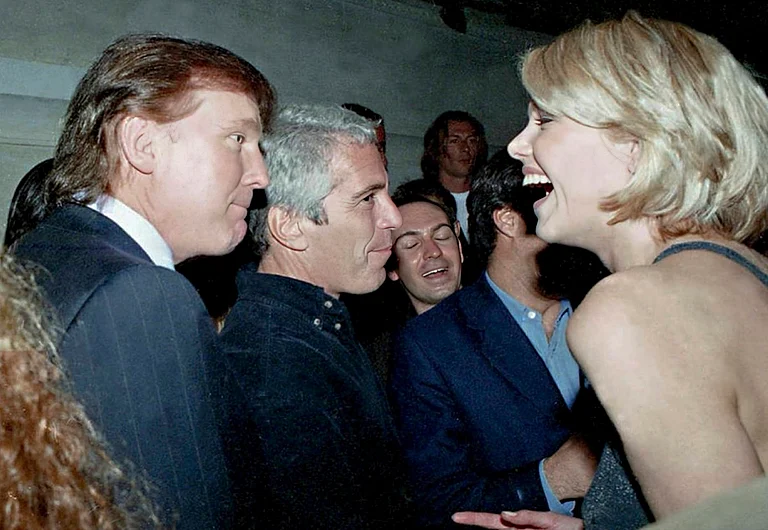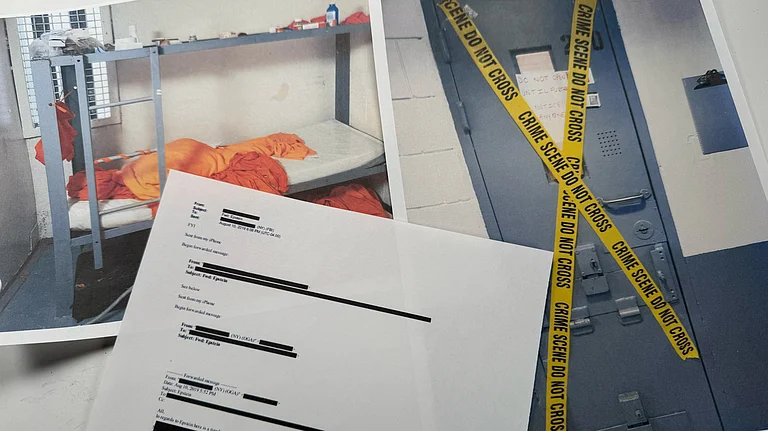House Republicans are proceeding with a bill that requires Chinese company ByteDance to divest TikTok or risk a United States ban, despite former President Donald Trump's objections to the initiative.
House leadership has set a vote on the measure for Wednesday. According to a Republican congressional aide who is not authorized to speak publicly, this remains the plan, and lawmakers have not shown significant opposition to the bill.
A vote in favor of the bill would signal a rare departure from the former president by House Republicans. However, Speaker Mike Johnson and other supporters have strongly endorsed the bill, and abandoning it at this stage would signify a major policy reversal. “It’s an important bipartisan measure to take on China, our largest geopolitical foe, which is actively undermining our economy and security,” Johnson stated last week.
On Monday, Trump reiterated his belief that TikTok still presents a national security concern. However, he opposes banning the immensely popular app because he believes it would benefit its competitor, Facebook, a company he continues to criticize for his loss in the 2020 election.
“Frankly, there are a lot of people on TikTok that love it. There are a lot of young kids on TikTok who will go crazy without it,” Trump stated during a call-in interview with CNBC's "Squawk Box."
“There’s a lot of good and there’s a lot of bad with TikTok. But the thing I don’t like is that without TikTok you’re going to make Facebook bigger, and I consider Facebook to be an enemy of the people, along with a lot of the media.”
“When I look at it, I’m not looking to make Facebook double the size,” he continued. ”I think Facebook has been very bad for our country, especially when it comes to elections.”
Trump has consistently criticized Facebook's role in the 2020 election, which he continues to refuse losing to President Joe Biden. This includes highlighting the at least $400 million donated by Facebook's founder, Mark Zuckerberg, and his wife to two nonprofit organizations that provided grants to state and local governments to aid in conducting the 2020 election amidst the COVID-19 pandemic.
The donations, which were legal under campaign finance regulations, funded items such as equipment for processing mail-in ballots and setting up drive-thru voting sites.
TikTok, a video-sharing platform, has become a significant focal point in the 2024 presidential race. With approximately 170 million users in the U.S., the majority of whom are younger, both political parties are eager to appeal to this demographic leading up to the November general election. Younger voters have proven increasingly challenging for campaigns to engage with as they shift away from traditional platforms like cable television.
Biden's 2024 campaign joined TikTok officially last month, despite the President expressing his own national security worries regarding the platform. He has previously prohibited its use on federal devices and, on Friday, voiced support for legislation that could potentially lead to its ban.
The bill under review in the House mandates that the Chinese company ByteDance sell off TikTok and other associated applications within six months of the bill becoming law to prevent a nationwide ban. Additionally, the legislation establishes a procedure enabling the executive branch to restrict access to other apps deemed to pose a national security risk.
As a House committee reviewed the bill last week and passed it with a unanimous 50-0 vote, TikTok stated, “This legislation will trample the First Amendment rights of 170 million Americans and deprive 5 million small businesses of a platform they rely on to grow and create jobs,”
Some advocacy groups and members who often align with Trump voiced disagreement with him on the TikTok bill. "He's wrong," stated Rep. Chip Roy, R-Texas. “And by the way, he had his own executive orders and actions he was doing. Now he’s suddenly flipped around on that.”
Heritage Action, a conservative advocacy group, announced its intention to incorporate the vote into its scorecard for assessing members.
“The legislation establishes an important national security standard for social media companies: Don’t be controlled by a foreign adversary,” the group said.
Reflecting the contentious nature of the issue transcending party lines, Democratic Representative Maxwell Frost of Florida voiced opposition to what he described as a “masked effort that will most likely result in TikTok being banned.”
“I think it’s going to have drastic impacts for businesses, content creators and a lot of folks in our country,” Frost remarked.
On the other hand, Republican Representative Michael McCaul, chairman of the House Committee on Foreign Affairs, expressed confidence in the bill's prospects in the House.
“It’s going to sail, and then it will be up to the Senate,” McCaul stated. “And the White House has already acknowledged that they’re going to sign it into law. So I think this is a real positive step.”
For the bill to become law, it will likely require support from at least 60 senators.
Senator Josh Hawley, R-Mo., indicated his intention to encourage colleagues to vote in favor. Additionally, Senator Eric Schmitt, a Missouri Republican who is often aligned with Trump, talked about TikTok's extensive data collection on Americans which "is very concerning," and has the potential of falling into the wrong hands.
During his presidency, Trump issued an executive order aiming to ban TikTok, citing concerns over mobile applications developed and owned by Chinese companies posing a threat to “the national security, foreign policy and economy of the United States.” However, the courts intervened and blocked the action following a lawsuit from TikTok, arguing that such measures would infringe upon free speech and due process rights.
In 2022, Biden prohibited the use of TikTok by the federal government's nearly 4 million employees on devices owned by government agencies, with exceptions for law enforcement, national security, and security research purposes.
Both the FBI and the Federal Communications Commission have issued warnings regarding TikTok's owner, ByteDance, potentially sharing user data—including browsing history, location, and biometric identifiers—with China's authoritarian government. TikTok has denied such actions and stated it would not comply if asked. The U.S. government has not presented evidence of such data sharing.
House lawmakers are anticipated to receive a briefing on TikTok from the FBI, Justice Department, and intelligence officials on Tuesday, according to a congressional aide who disclosed the information anonymously.
In the interview, Trump mentioned that he had not discussed TikTok with Jeff Yass, a TikTok investor and significant GOP donor. Trump indicated that although they had recently met briefly, TikTok was not mentioned during their interaction.
Trump also confirmed a recent meeting with Elon Musk, the billionaire CEO of Tesla and SpaceX, who has increasingly aligned himself with conservative politics. Trump acknowledged that he was unsure whether Musk would support his campaign, noting they “obviously have opposing views on a minor subject called electric cars,” a topic Trump has criticized.






















